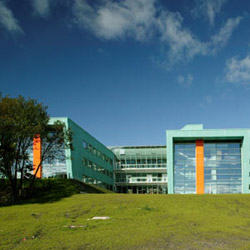Recent Stories
- Businesses urged to tap into science and technology young talent
- Digital relay baton enables remote crowd cheering of athletes
- Health Innovation Campus moves a step closer
- £7.1 million R&D boost for North West businesses
- Centre of excellence created for the next industrial revolution
- Artificial intelligence toolkit spots new child sexual abuse media online
- Strategic partnership set to help plug cyber security skills gap
- What your choice of smartphone says about you
- InfoLabTree: Discover the Story
- novi.digital Launch Event - 'An Event to Help Businesses Grow Online'
RSS Feeds
RSS feeds can deliver the latest InfoLab21 news and events direct to your browser without you having to visit the website.
In most browsers you can click on an RSS link and choose to subscribe to the feed to add it to your favourites or bookmarks.
£266,000 Grant To Boost Business Innovation
 InfoLab21
InfoLab21
A £266,000 project has been awarded to staff at InfoLab21 and Lancaster University Management School to investigate how to promote innovation in the UK economy.
Dr. Nigel Lockett and Dr. Sarah Robinson of the Business Development and Innovation Unit at InfoLab21 will be looking into the role of Knowledge Transfer and Networks.
Dr. Nigel Lockett said;
"This is an excellent opportunity for us to extend our research by investigating the Knowledge Transfer Process in other organisations such as Regional Development Agencies, large corporations and other Higher Educational Institutions."
Prof. Mary Rose of the Institute for Entrepreneurship and Enterprise Development (IEED) in the Lancaster University Management School will lead the three year project which is supported by the Advanced Institute of Management Research (AIM) with funding from the ESRC.
Also working on the project is Dr. Sarah Jack of IEED, and Dr. Moira Decter, who will be working on her second PhD comparing technology transfer in the UK and the US and will be supervised by Prof. Rose and Dr Frank Cave of IEED.
Prof Rose's innovation project is entitled "Knowledge and Technology Transfer, Innovation and Competitive Advantage: Past and Present."
She said: "What is distinctive about this project is that it looks at both the past and the present to understand the social processes that facilitate knowledge and technology transfer and the forces that inhibit it. It will explore the relationships between business and universities in the past and compare them with the post Robbins era to consider what changed and the impact this had on business/university relationships. It will explore the importance of social processes to successful technology and knowledge transfer, the importance of dialogue and the development of shared understanding."
Prof Rose said that the IEED's LEAD programme is a successful example of Knowledge Transfer, with companies which have attended the course reporting an average increase in sales of £200,000.
"LEAD is a flexible learning model which was adapted to suit the business needs of those who attended. It's not just about giving out advice but also enabling peer to peer interaction so they can learn from each other."
The project is one of eight in the UK being funded by AIM in order to improve Britain's competitive edge in a global marketplace. Among the others is one by Dr. James Wilsdon, a senior research fellow at the Institute for Advanced Studies at Lancaster who also leads the science and innovation programme at the thinktank Demos. His project will look at some of the factors affecting R&D collaboration between the UK and China.
Thu 19 April 2007



